Coronavirus: Doctors fight back against misinformation online
- Published
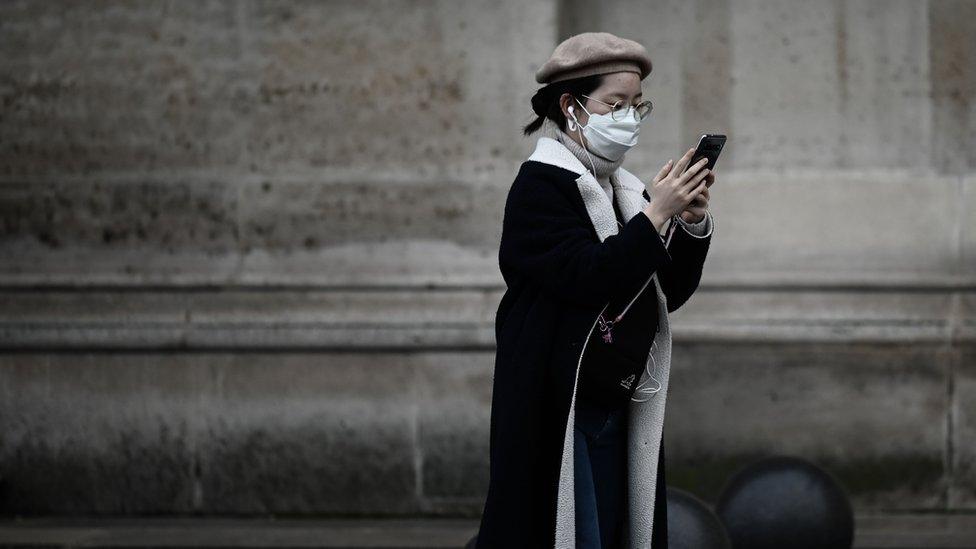
With viral misinformation about the deadly coronavirus in China spreading rapidly online, some doctors and scientists have taken to social media to fight back against false reports.
At least 213 people have died as a result of the outbreak of the new virus, which has been declared a global emergency by the World Health Organization (WHO).
The number of confirmed cases in China has reached almost 10,000 and infections have been reported in at least 18 other countries, surpassing the epidemic of Sars - severe acute respiratory syndrome - in 2003.
The BBC's online health editor on what we know about the virus
With no vaccine currently available against the new virus, social media has been awash with dubious health advice and conspiracy theories that cast doubt on the disease's origin and the scale of the outbreak.
This has prompted some doctors and scientists to push back against online misinformation on the very platforms where it thrives. So far, some of their videos have been watched millions of times on YouTube and gathered thousands of likes on Twitter.
The WHO has also tweeted advice on how to reduce the risk of infection., external
BBC Monitoring has been looking into some of the advice put online and the reaction to it.
Dr Mikhail Varshavski, known online as Dr Mike, is a Russian-American celebrity doctor and YouTuber, who became famous after appearing in People magazine's 2015 issue of the Sexiest Doctor Alive.
Having seen a lot of misinformation online on the coronavirus, he took to his YouTube channel earlier this week to "set the record straight", and offer advice on practical ways to protect yourself from infection.
"There is so much misinformation out there. They take statistics not validated by scientists and put them online. It causes anxiety among the public and creates panic," he told the BBC.
"The reason it is so dangerous is it can lead people to make bad decisions for themselves and their families."
Prof Chris Whitty: "There is a high chance that people will get better and end up with a relatively minor disease"
In his clip The Truth About The Coronavirus, external, watched three million times in two days, Dr Mike has urged his followers not to panic and to treat viral content on the outbreak with caution.
"Please don't think that if you read someone's tweet and it has been retweeted a lot, it's an accurate source of information. It is not. Look for reputable organisations to get your information from," he said, citing the WHO as one example.
He went on to list some of the things users can do to protect themselves, such as regular hand washing and avoiding contact with anyone showing symptoms of a respiratory illness.
On Twitter, scientists and researchers have been using the hashtag #nCoV2019 - the name of the virus - to spread the latest data on the scale and origin of the disease.
One of them is Dr Muge Cevik, an infectious diseases and virology clinician and researcher at the University of St Andrews, who has been summarising the latest research and data available on the virus "to have a better understanding" of it.
This includes information about symptoms associated with the disease, its incubation period and transmission patterns.
Some of the tweets have also addressed unverified claims, such as the virus having an unusually long incubation period., external
The thread has been praised by many social media users.
"This is an excellent way of sharing high quality information - thank you," a typical comment read., external
No 'unnecessary fear'
Another scientist vocal on Twitter about the outbreak is Lauren Gardner, an associate professor in the Department of Civil and Systems Engineering at Johns Hopkins University in Baltimore.
One of her most popular tweets on the outbreak, contains a link to "real-time" data on the spread of the virus,, external which has been shared more than 500 times on Facebook and gathered more than 160,000 interactions on the platform.
"We didn't initially do this to counter misinformation," she told the BBC. "We created and shared it as a user-friendly, real-time map as we thought it'd be helpful to the research community and public health authorities.
"We don't want to incite unnecessary fear. So we just present reliable data in a minimal way."
- Published22 February 2022
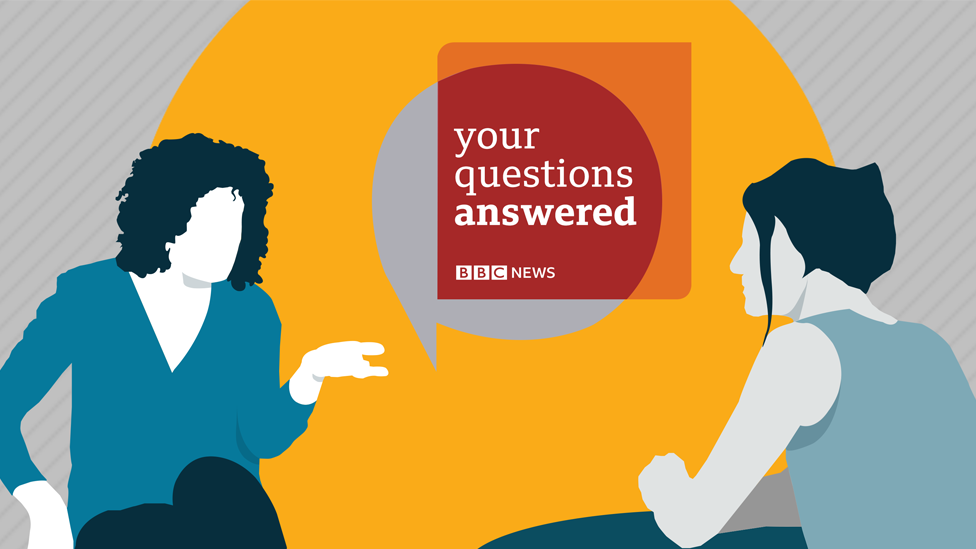
- Published31 January 2020
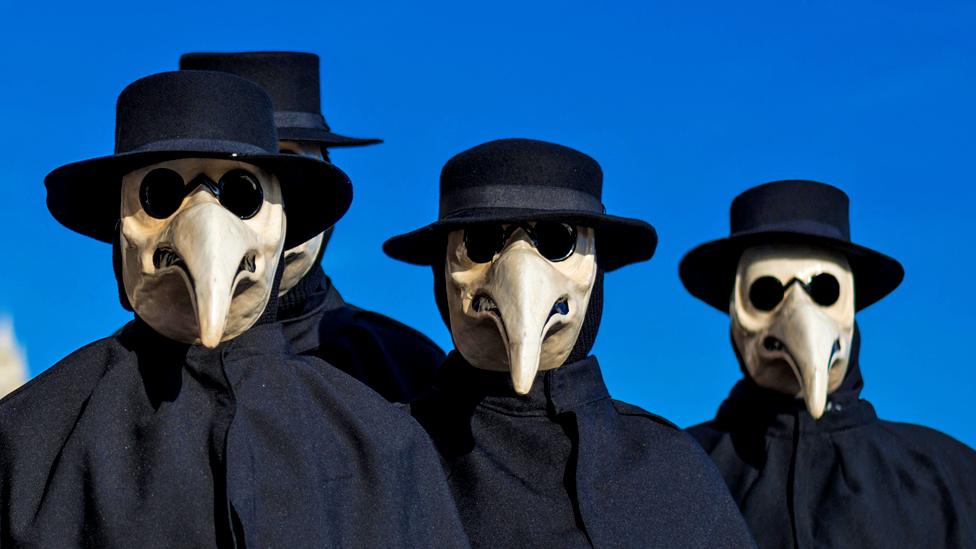
- Published31 January 2020

- Published31 January 2020

- Published14 March 2020
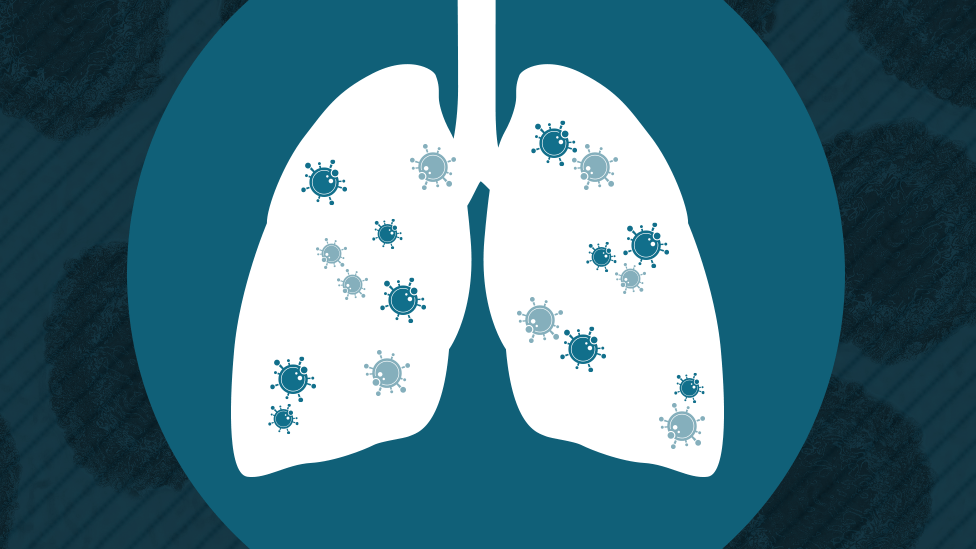
- Published30 January 2020

- Published29 January 2020
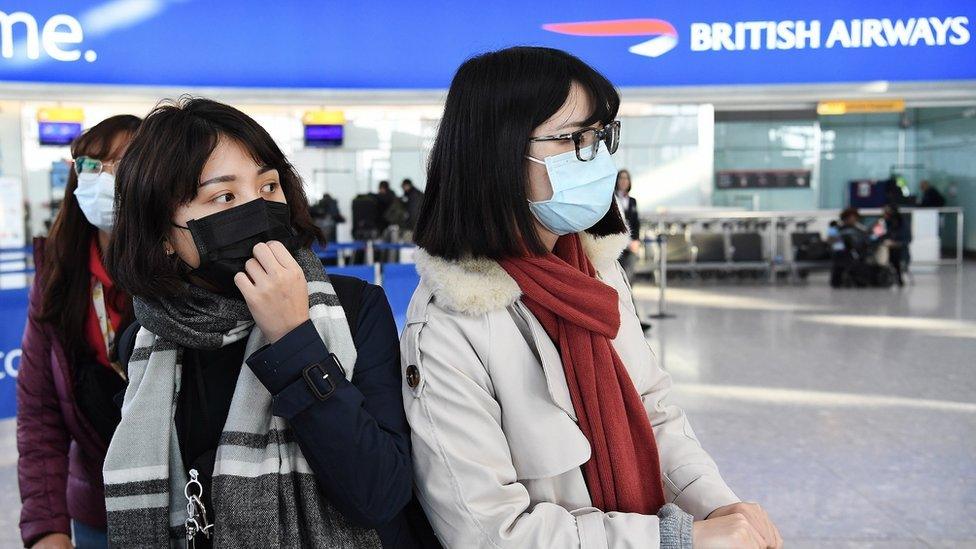
- Published23 January 2020
